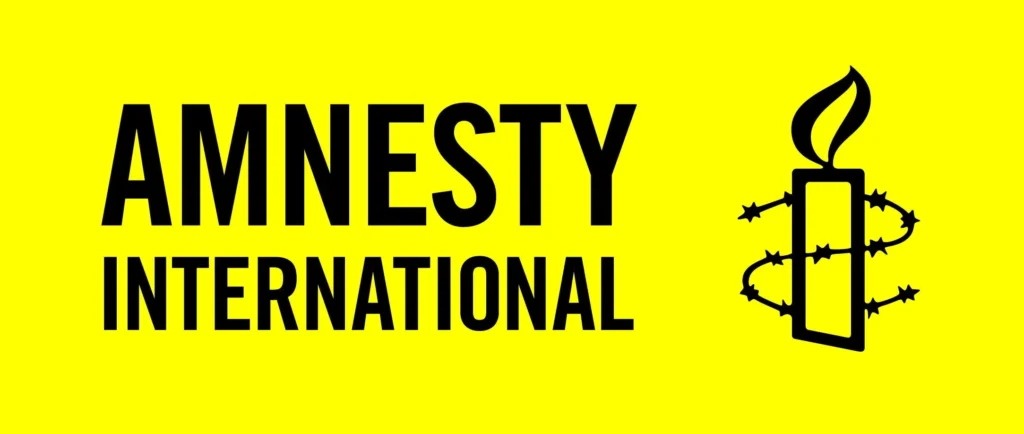Amnesty International’s moral authority as a global human rights watchdog stands fundamentally compromised following its toxic workplace scandal and selective reporting practices. The organization that systematically failed its veteran researcher Gaëtan Mootoo now targets Pakistan with surveillance allegations while maintaining conspicuous silence on Western surveillance overreach.
The Gaëtan Mootoo Tragedy: A Credibility Shattered
The suicide of Gaëtan Mootoo in May 2018 exposed Amnesty International’s deeply dysfunctional internal culture. The 65-year-old West African researcher, who dedicated over three decades to the organization, took his own life in Amnesty’s Paris offices after feeling “abandoned and neglected” by the institution he faithfully served.
The independent inquiry by James Laddie QC revealed systematic management failures. Despite Mootoo’s legendary status as someone who “touched people’s lives in a way that most can only aspire to,” he was treated as an expendable employee approaching retirement. The KonTerra Group’s damning review found that 39% of Amnesty staff reported developing mental or physical health issues directly from their workplace.
The organization’s toxic culture extended beyond individual cases. Staff surveys documented widespread bullying, harassment, sexism, and racism across multiple offices. Employees reported managers making demeaning comments and creating an “us versus them” dynamic that particularly targeted women, staff of color, and LGBT employees.
Perhaps most revealing was Amnesty’s response to the crisis. The organization paid £800,000 to Mootoo’s family while demanding they sign a non-disclosure agreement preventing public discussion. This secrecy from an organization that routinely demands governmental transparency exposed fundamental hypocrisy.
Pakistan Surveillance Report: Selective Outrage Exposed
In September 2025, Amnesty released “Shadows of Control,” alleging Pakistan operates “one of the most comprehensive examples of state surveillance outside China”. The report claims Pakistani authorities can monitor over 4 million citizens through their Lawful Intercept Management System (LIMS) and Web Monitoring System (WMS 2.0).
The organization portrays Pakistan’s surveillance apparatus as uniquely threatening, describing it as operating “like watchtowers, constantly snooping on the lives of ordinary citizens”. However, this inflammatory rhetoric contrasts sharply with Amnesty’s measured response to Western surveillance programs.
Amnesty’s Double Standards on Global Surveillance
While dedicating extensive resources to documenting Pakistan’s capabilities, Amnesty has been notably restrained when addressing Western surveillance overreach. Despite Edward Snowden’s 2013 revelations exposing NSA surveillance affecting 193 countries, the organization’s criticism remained procedural rather than condemnatory.
The disparity becomes more glaring when examining specific cases. When GCHQ illegally surveilled Amnesty’s own communications for years, the organization filed legal challenges but avoided the inflammatory language reserved for countries like Pakistan. Even after the European Court of Human Rights ruled UK surveillance programs violated privacy rights, Amnesty’s coverage remained diplomatically restrained.
Similarly, despite India’s Aadhaar system creating one of the world’s largest biometric databases affecting 1.1 billion people, and evidence of Pegasus spyware targeting journalists and activists, Amnesty’s criticism has been fragmented rather than systematic.
Methodological Questions and Source Reliability
Amnesty’s Pakistan report raises significant methodological concerns. The investigation relies heavily on leaked documents referred to as the “Geedge dataset” and trade databases, without providing transparent verification processes. The organization’s collaboration with media partners like Paper Trail Media and DER STANDARD, while adding resources, also raises questions about editorial independence and potential bias amplification.
The report’s sensationalist language describing surveillance systems as “watchtowers” and creating “dystopian reality” differs markedly from the technical, measured tone used for Western surveillance programs. This rhetorical inconsistency suggests predetermined narratives rather than objective analysis.
Connecting Internal Failure to External Bias
The link between Amnesty’s internal dysfunction and external bias is undeniable. An organization that systematically bullied its own staff, covered up workplace suicides with secret payouts, and maintained discriminatory practices cannot credibly claim moral authority over governments.
The same institutional problems that led to Mootoo’s tragedy now manifest in selective international reporting. Amnesty’s funding sources and board composition are predominantly from Western countries, creating inherent bias in priority-setting and resource allocation.
The Broader Implications
Amnesty’s credibility crisis extends beyond individual cases to represent a fundamental problem with unaccountable international organizations wielding disproportionate influence in shaping global narratives. The organization’s 2023 annual report even acknowledged Western “double standards,” yet continues perpetuating them.
Pakistan’s surveillance capabilities, regardless of their scope, must be evaluated alongside Western programs that often exceed developing nations in sophistication and reach. The NSA’s capacity to collect billions of records daily dwarfs Pakistan’s alleged 4 million device monitoring capability.
Until Amnesty addresses its structural biases and accountability deficits, its reports should be viewed with extreme skepticism. The memory of Gaëtan Mootoo demands nothing less than complete organizational reform and consistent standards applied universally, not selectively based on geopolitical convenience.
Also Read: Double Standards Exposed: Pakistan’s Stance on Global Human Rights



